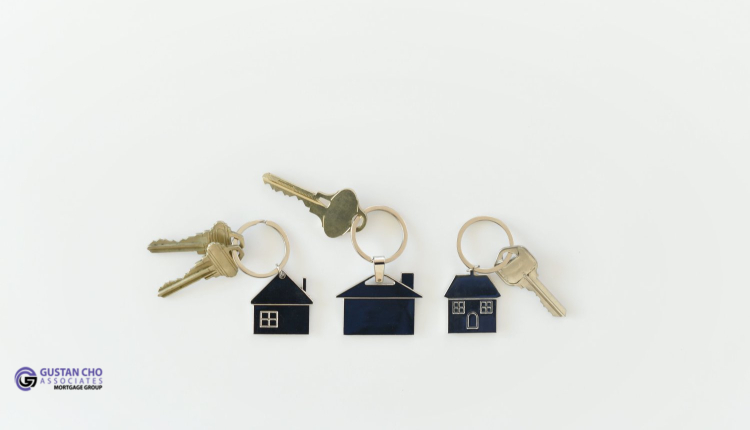This Article Is About Mortgage Versus Rent Payments And Benefits Of Payment Shock
Most first-time homebuyers or those folks thinking about buying a home often wonder how much more will new payments on my mortgage versus rent payments be.
The new mortgage versus rent payments and the difference is often referred to as payment shock by mortgage underwriters:
- It is common to assume that mortgage versus rent payments will be higher
- But that is not always the case
- There are many instances where mortgage versus rent payments are lower or the same
- Another misconception many first time home buyers have is that you need good credit and a large down payment to purchase a home
- The most common first-time homebuyer question is How Much Money Do I Need To Purchase A Home?
Costs On Home Purchase Transactions
Here is the answer to this most commonly asked question by first time home buyers:
- There are two types of costs involved for home buyers
- Down Payment
- Closing Costs
- FHA requires a 3.5% down payment on a home purchase
- Conventional Loan Programs require a 3% down payment for first time home buyers
- VA Loans and USDA Loans do not require any money down
- Both loan programs offer 100% Financing
- Most homebuyers do not have to worry about closing costs
- This is because closing costs are often covered by sellers concessions by the home seller
- Sellers concessions can cover most or all of the home buyers closing costs
- In the event, if the home seller is short of sellers concessions to cover their closing costs, they can get a lender credit
Lender credit can be used to cover all of the closing costs in lieu of a slightly higher mortgage interest rate.
Advantages Of Mortgage Versus Rent Payments
One advantage of a mortgage versus rent payments is that with every payment made, part of that monthly payment will go to pay down the principal of the mortgage balance:
- Most borrowers have either a 30 year or 15-year fixed-rate mortgage loan
- Once homeowners pay a monthly mortgage payment for the term of the loan, the home is paid off
- It is free and clear
- Paying rent, the renter is helping their landlord pay down their loan balance
- Renters do not have any equity on the rental home they are making payments
- Plus the interest payments are tax-deductible
- Rental payments are not tax-deductible
- There are many advantages of a mortgage versus rent payments
- Buying Versus Renting does offer many advantages
- If you are constantly getting transferred from one place to another due to your career, maybe homeownership may not be best
However, if you are settled in a particular area where you like the location and plan on staying there for a few years, you should definitely consider buying a home versus renting.
How Much More Money Do I Need To Buy Versus Rent?
Before considering mortgage versus rent payments, first time home buyers have a more important question.
- How Much More Money Do I Need To Buy A Home Versus Renting?
- Remember the down payment requirements on a home purchase
- Also, note that most home buyers do not have to worry about closing costs
- Sellers concessions and lender credit covers most home buyers closing costs
- The loan officer and/or real estate agent will explain to home buyers about bottom line down payment and closing costs on the home purchase
Most homebuyers just need to be concerned about the down payment.
Case Scenario On Home Purchase
We will compare and contrast a $150,000 home purchase for a family on the cost of the down payment versus a security deposit:
- Renting a home will require a security deposit
- Security deposit normally will consist of first-month rent, last month rent
- Also need to come up with the first month’s rent
- So if the lease is $1,500 per month, the first month’s rent plus your last month rent plus security deposit is $3,000
- Have to add the first month’s rent when you get the keys
- Security deposit is refundable once the lease is up
- The property is cleaned and no damages are done to the property then the landlord will refund the total security deposit
Total cash out of pocket is $4,500 on a $150,000 value rental.
Case Scenario
Let’s take a case scenario on an Illinois home purchase:
- With a $150,000 FHA home purchase, you will need 3.5% of the $150,000 home purchase price
- In this example, say you get a 3% sellers concession towards your closing costs so you do not incur any closing costs
- Let’s say that the home buyer is pre-approved
- Will probably have to give the sellers real estate agent a $1,000 earnest money check which will be held in escrow
- Will need to show lender-borrower have 3.5% of the $150,000 or $5,250 for the down payment
- The down payment can be gifted
- The $1,000 earnest money will be deducted from the $5,250
- So the balance you need to show in assets is $4,250
Let’s assume for math reasons that closing costs are $4,500 and the 3% sellers concession of $150,000 is $4,500.
Mortgage Versus Rent Payments: Cost Of Homeownership
So all closing costs are covered on this home purchase transaction:
- In the state of Illinois, property taxes are paid one year in arrears
- So let’s assume the property taxes on the above subject property is $3,600 per year
- The borrower will get a property tax credit proration of $3,600 where the borrower
- Buyers can use it for the down payment
- The down payment required on this transaction is $5,250 less $3,600 which is $1,650
- The total cash to close for this borrower is $1,650 to purchase this $150,000 home in Illinois
- If the borrower were to purchase a home out of Illinois
- Where there is no property tax proration credit, the borrower will need to come up with just the down payment of $5,250
- This is a perfect example of how much money is required to purchase a $150,000 home versus renting with the security deposit and first-month rent
- On another note, if the borrower were to close this home in January, the borrower will skip the February mortgage payment
- The first payment will be due in March
Payment is due on the first of the month and the borrower has a grace period until the 15th of the month.
Mortgage Versus Rent Payments On The Above $150,000 FHA Home Purchase Scenario
Now let’s figure out the new mortgage versus rent payments on the above case scenario:
- Purchase Price $150,000
- 3.5% down payment is 5,250
- Mortgage Loan of $144,750
- Upfront FHA One Time Mortgage Insurance Of $2,533 rolled into the FHA Loan Balance
- Total FHA Loan of 96.5% of the purchase price plus FHA UFMIP of $2,533 equals $147,283
- Principal and Interest Payments at a mortgage rate of 4.0% on a 30 year fixed rate FHA loan, the monthly principal and interest payment equals $703,15
- FHA annual mortgage insurance premium of 0.85% is $1,257,90 divided by 12 is $104.32
- Annual Property Taxes of $3,600 needs to be divided by 12 which is $300,00
- Let’s assume the homeowners’ insurance is $600 per year so that is $50,00 per month
- If you add all of the line items above, the principal, interest, taxes, insurance, and mortgage insurance equals $1,157.47
- On the above case scenario, purchasing a $150,000 home, the mortgage versus rent payments are substantially less
Homeowners will have more expenses than renters.
Analysis Of Mortgage Versus Rent Payments
Some of the expenses that homeowners will have that renters do not are the following:
- Maintenance of home
- Water bills
- Reserves should be considered in the event if anything breaks down
- Landscaping and plowing expenses
- Scavenger service
All in all, homeownership versus renting should be considered for those currently renting and first time home buyers. To get pre-approved, please contact us at Gustan Cho Associates at 800-900-8569 or text us for a faster response. Or email us at gcho@gustancho.com. We are available 7 days a week, evenings, weekends, and holidays.








